Please visit our website, www.garethstevens.com.
For a free color catalog of all our high-quality books, call toll-free 1-800-542-2595 or fax 1-877-542-2596.
Library of Congress Cataloging-in-Publication Data
Cooke, Tim, 1961
Jesse James : a notorious bank robber of the wild west / Tim Cooke.
pages cm. (Wanted! Famous outlaws)
Includes index.
ISBN 978-1-4824-4259-5 (pbk.)
ISBN 978-1-4824-4260-1 (6 pack)
ISBN 978-1-4824-4261-8 (library binding)
1. James, Jesse, 1847-1882Juvenile literature. 2. OutlawsWest (U.S.)BiographyJuvenile literature. 3. Frontier and pioneer lifeWest (U.S.)Juvenile literature. 4. West (U.S.)History1860-1890Juvenile literature. I. Title.
F594.J27C66 2016
364.1552092dc23
[B]
2015025044
Published in 2016 by
Gareth Stevens Publishing
111 East 14th Street, Suite 349
New York, NY 10003
2016 Brown Bear Books Ltd
For Brown Bear Books Ltd:
Editorial Director: Lindsey Lowe
Managing Editor: Tim Cooke
Childrens Publisher: Anne ODaly
Design Manager: Keith Davis
Designer: Melissa Roskell
Picture Manager: Sophie Mortimer
Picture Credits: Front Cover: Library of Congress. Alamy: AF Archive 42; Americasroof: 19, 32; Brown Bear Books: 6; Elkman: 34; Ichabod: 20; Library of Congress: 4, 7, 10, 11, 13, 14, 15, 16, 17, 22, 24, 26, 27, 29, 31, 35, 39, 41, 43, 45; Papershke: 23; Robert Hunt Library: 8, 30; Shutterstock: Everett Historical 5, 12, 33, 36, 37, 38, 40, 44, Marzolino 28; Thinkstock: istockphoto 25, Photos.com 9; Topfoto: The Granger Collection 18, 21.
Brown Bear Books has made every attempt to contact the copyright holders.
If anyone has any information please contact
All rights reserved. No part of this book may be reproduced, stored in a retrieval system, or transmitted in any form or by any means, electronic, mechanical, photocopying, recording, or otherwise, without the prior written permission of the copyright holder.
Manufactured in the United States of America
CPSIA compliance information: Batch #CW16GS. For further information contact Gareth Stevens, New York, New York at 1-800-542-2595.
CONTENTS
Introduction:
A Frontier Upbringing
Focus: Bleeding Kansas
Focus: Bushwhackers
Postwar Missouri
First Robberies
Jesse Becomes Famous
I Am Innocent
The James-Younger Gang
His Reputation Spreads
Focus: The Railroads
Get Jesse!
Raid on the Homestead
The Final Raid
A New Gang
A New Recruit
Shot in the Back
Focus: Jesses Legacy
Rogues Gallery
Glossary
Further Resources
Index
INTRODUCTION
Jesse James was a bank robber, train robber, and murderer. He is famous as a feared outlaw of the Wild West. He loved publicity. He often wrote to newspapers about his crimes.
J esse James even left press releases at the scenes of some of his robberies. They told journalists how to report the crimes. Jesse saw himself as a kind of hero. He wanted others to see him as a hero, too. Jesse believed that he was standing up for the right of the states to ignore the US government in Washington, D.C. Many people agreed with him.
Jesse James was born on September 5, 1847, in Clay County, Missouri. At the time, US settlement was spreading west across North America. In 1803, the United States bought a huge region west of the Mississippi from France. The deal was called the Louisiana Purchase. It included the area that became Missouri.
This photograph, showing five generations of slaves, was taken in South Carolina.
Political change
White settlers from the East Coast soon began to move into the new territory. They were looking for land to farm or the chance to set up a business, such as a store. In 1819, Missouri asked the US government if it could become a state.
Jesse James grew up in Missouri. He and his family believed people should be able to own slaves.
The request caused a problem for the US government. The people in Missouri supported slavery. Like landowners in other Southern states, they wanted to use slaves to work on farms or plantations. However, people in northern states were against slavery.
Publicity Attention paid to someone in the newspapers or other media. Plantations Large estates for growing crops such as cotton, sugar, and rice. |
The country was divided into slave states (orange) and free states (dark green). As territories (light green) became states, they chose whether to be free or slave states.
 Free states
Free states
 Slave States within the Union
Slave States within the Union
 Territories
Territories
 Slave states that left the Union
Slave states that left the Union
If Missouri became a state, the slave states of the South would have more members in Congress than states that did not allow slavery. To keep the balance, Congress created the Missouri Compromise in 1820. This law separated Maine from Massachussetts to create a new free state. Missouri joined the Union as a slave state in 1821. Congress also ruled that new states that joined the Union north of a certain line would ban slavery. It seemed like the crisis had passed.
The Kansas-Nebraska Act
In 1854, the Kansas-Nebraska Act overturned the Missouri Compromise. The new law said that people living in the new states of Kansas and Nebraska could decide for themselves whether to be a slave state or a free state. In Kansas, many people opposed slavery, but many others supported it. The two sides clashed. There were violent fights.
Jesse James family farm in Missouri lay close to the border with Kansas. The family followed stories about the growing violence in Kansas. They had a great effect on Jesse and his brother, Frank.
The James family farm was home to Jesse, his brother Frank, and their sister Susan Lavenia.
Compromise A solution to a dispute in which each side gives up some of its demands. Union The United States of America. |
A Frontier Upbringing
Jesse James grew up on the frontier. This was the very edge of the United States as white settlers moved westward across North America.
Jesses parents moved to this farm in Missouri from Kentucky in 1842. His father grew hemp, which was used for making ropes.
L ife on the Frontier was often hard. Families had to look after themselves. There were few towns or stores, or services such as plumbing. Many people were poor farmers. They worked hard to make a living. Many people in Missouri used slaves to help them work on their land.

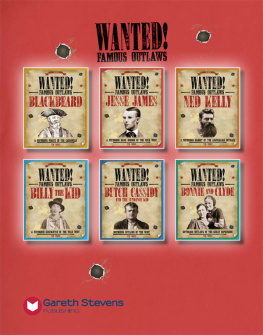

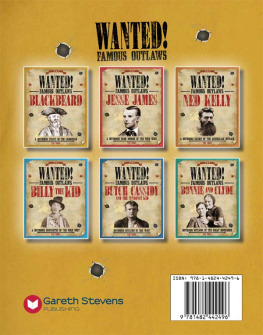
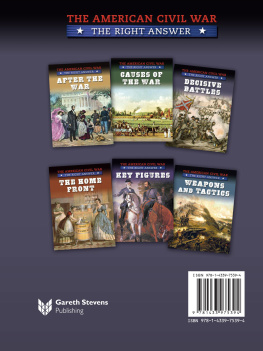

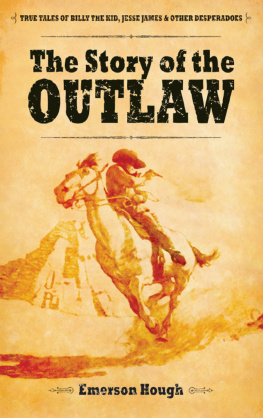
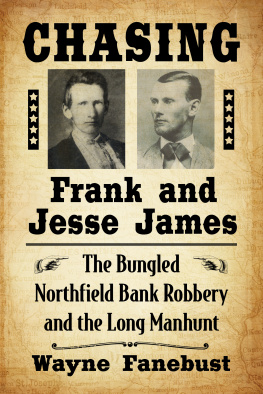
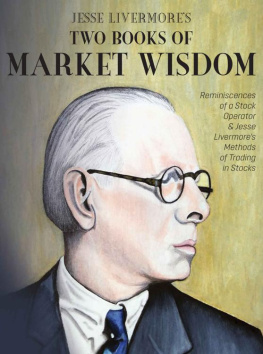

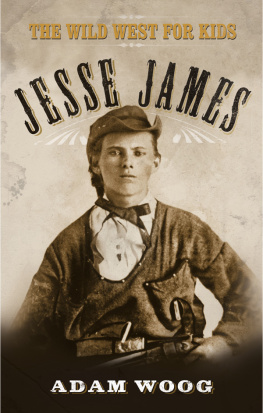
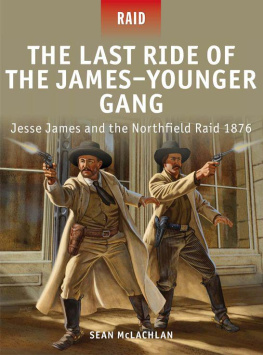

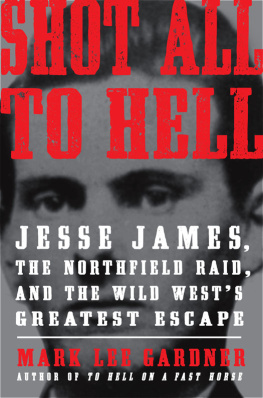
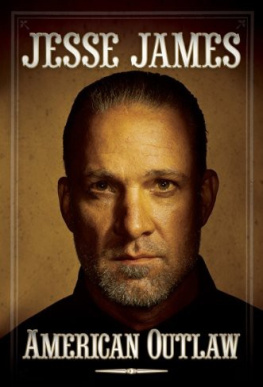


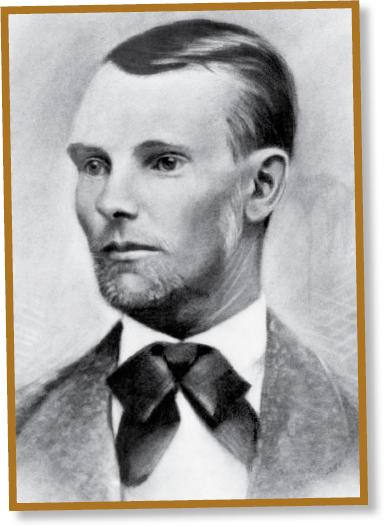

 Free states
Free states Slave States within the Union
Slave States within the Union Territories
Territories Slave states that left the Union
Slave states that left the Union
